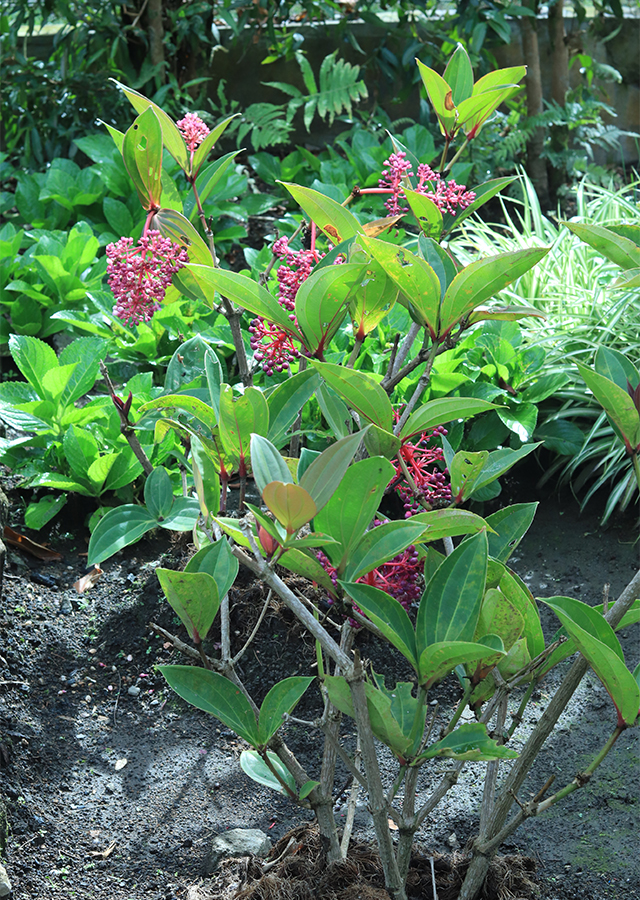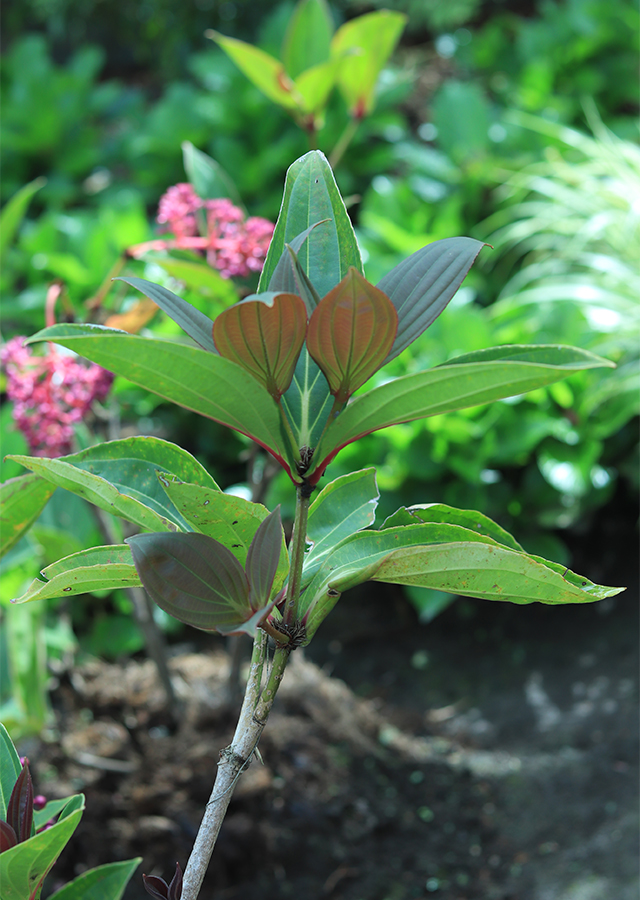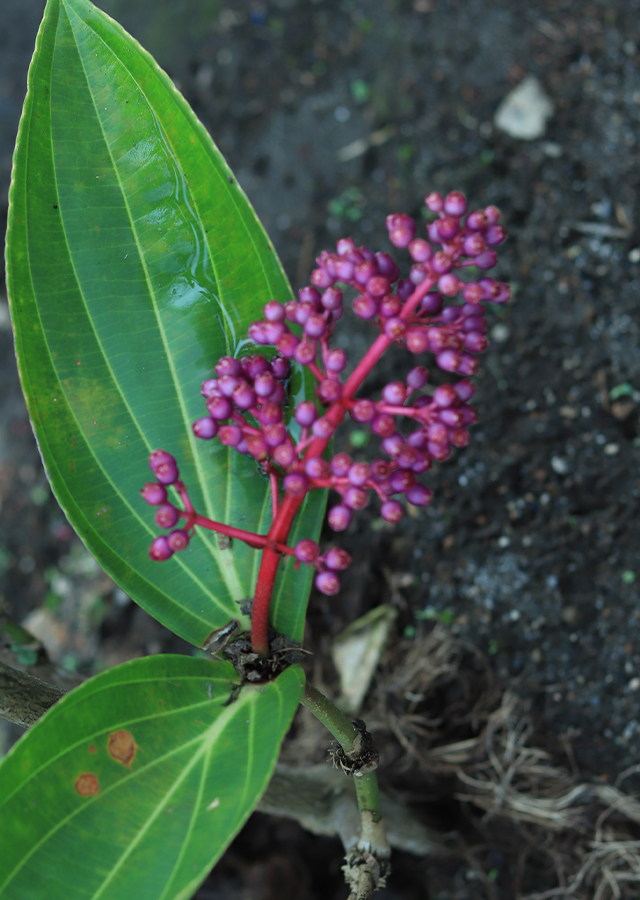Chandelier Tree
Medinilla cumingii Naudin
Melastomataceae
Location in our garden
Green House



Synonym
Medinilla peninsula Elmer
Medinilla speciosa Hook.
Medinilla vanoverberghii Merr.
Habitus
Shrubs. An evergreen perennial shrub that grows about 1.8 m tall
Part Used
Leaves
Fruit
Growing Requirements
Need Shade
Habitat
Forest
Terrestrial
Overview
Native to Philippines. Chandelier tree is a desirable plant for its ornamental foliage, flower and fruit. This plant has not only edible fruits, but also edible, nicely sour leaves. In addition, this plant is also believed to have benefits as a medicinal plant.
Vernacular Names
Gulingbanban (Philippines).
Agroecology
Found in moist and wet forests at low elevations. Thrives in shaded conditions with moist soil. Outdoors, no frost is allowed, but cold weather to near freezing is tolerated. Medinilla performs extremely well in shaded areas, in pots, can even be used in hanging basket arrangements because the bloom clusters droop when in flower for that cascading look.
Morphology
- Root - fibrous system.
- Stem - rounded to subquadrangular, diameter 4-5 cm at the base, hairy, yellowish-brown.
- Leaves - simple, smooth, leathery, thick, green, whorled arrangement, pinnate margin, elliptical shaped.
- Flower - pink, purple, white, panicle inflorescence, polycarpichite.
- Fruit - simple, berry, fleshy, pink when mature. Very young fruits are quite tasteless, but as they mature they becoming sour before they get ripe.
- Seed - tiny, about 1 mm.
Cultivation
Propagated by seed (generatively), and by stem cutting (vegetatively).
Chemical Constituents
Alkaloids, flavonoids, tannins, saponins, glycosides, and steroids.
Traditional Medicinal Uses
- The leaves are also rich in vitamin C, which supress fatigue, boost immunity, has strong antioxidant, antiviral and antibacterial actions.
- Improving circulation, increasing blood flow in both brain and muscles.
Part Used
Reference Sources
- Arseniuk, Adam F. (2017). Medinilla magnifica, Medinilla pendula, Medinilla speciosa and closely related species. http://herbsfromdistantlands.blogspot.com/2017/09/medinilla-magnifica-medinilla-pendula.html. 26-11-2021.
- Flora Fauna Web. (2021). Medinilla cumingii Naudin. https://www.nparks.gov.sg/florafaunaweb/flora/2/2/2217. 26-11-2021.
- Kew Royal Botanic Gardens. (2018). Plants of the World Online: Medinilla cumingii Naudin. http://www.plantsoftheworldonline.org/taxon/urn:lsid:ipni.org:names:570145-1. 26-11-2021.
- Pasific Island Ecosystems at Risk. (2017). Medinilla cumingii Naudin, Melastomataceae. http://www.hear.org/PIER/species/medinilla_cumingii.htm. 26-11-2021.
- Top Tropicals. (2021). Medinilla cumingii. https://toptropicals.com/catalog/uid/medinilla_cumingii.htm. 01-12-2021.

